 >home>
sepku news
>home>
sepku news
on the morning of november 17, 2021, the 6th lecture of international organization and global economic governance was held at school of economics. this event was jointly organized by the school of economics at peking university and the international organization talent training office of the employment guidance and service center.
before the lecture, professor qin xuezheng, vice dean of the school of economics at peking university, and associate professor wu zenan, assistant to the dean, had a meeting with dr. eric boglov and his colleagues. before the lecture, academic committee of school of economics decided to confer upon dr. eric boglov the title of honorary professor. professor qin xuezheng presented dr. eric boglov with a certificate. gao jingyu, economic analyst of aiib, and xie zhiyu, secretary general of the international organization talent training office of the employment guidance and service center of peking university, attended the meeting.
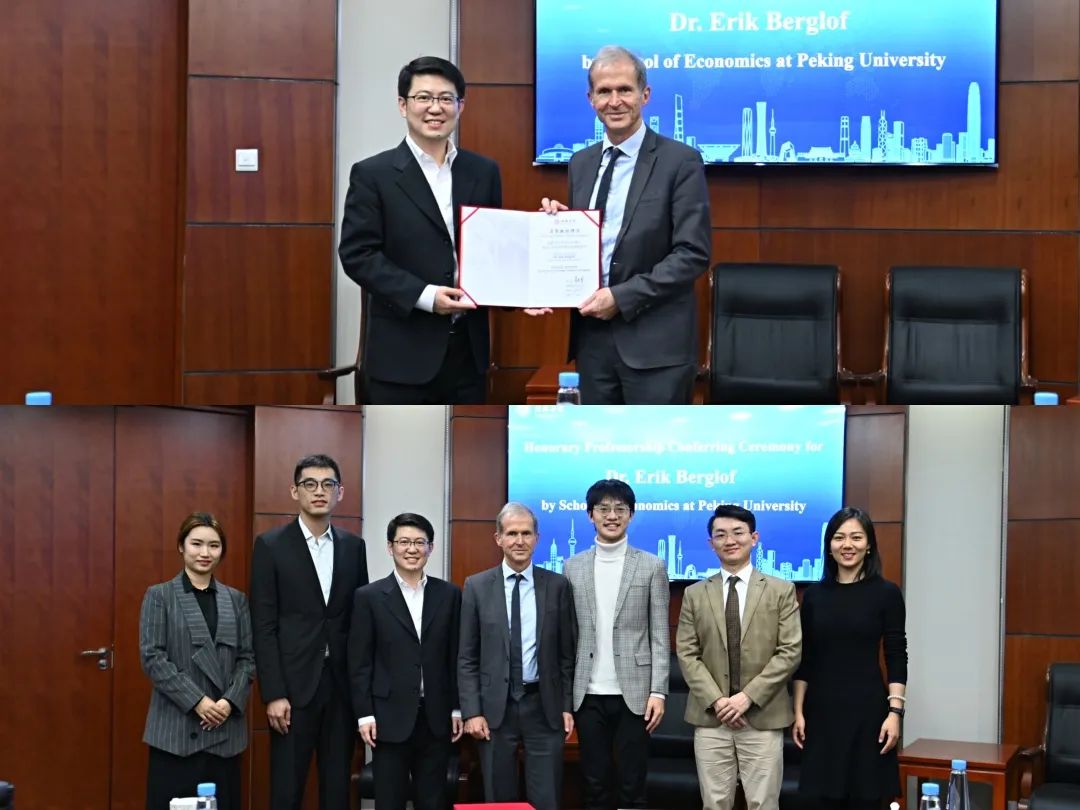
conferring ceremony and group photo after meeting
prof. erik berglof, chief economist of asian infrastructure investment bank, made a presentation entitled "global value chains as levers of sustainable development". the lecture was hosted by wu zenan. prof. erik berglof pointed out that in every link of the global value chain, added value is continuously created and accumulated, and flows around the world through the network, forming a global value chain with industrial distribution.
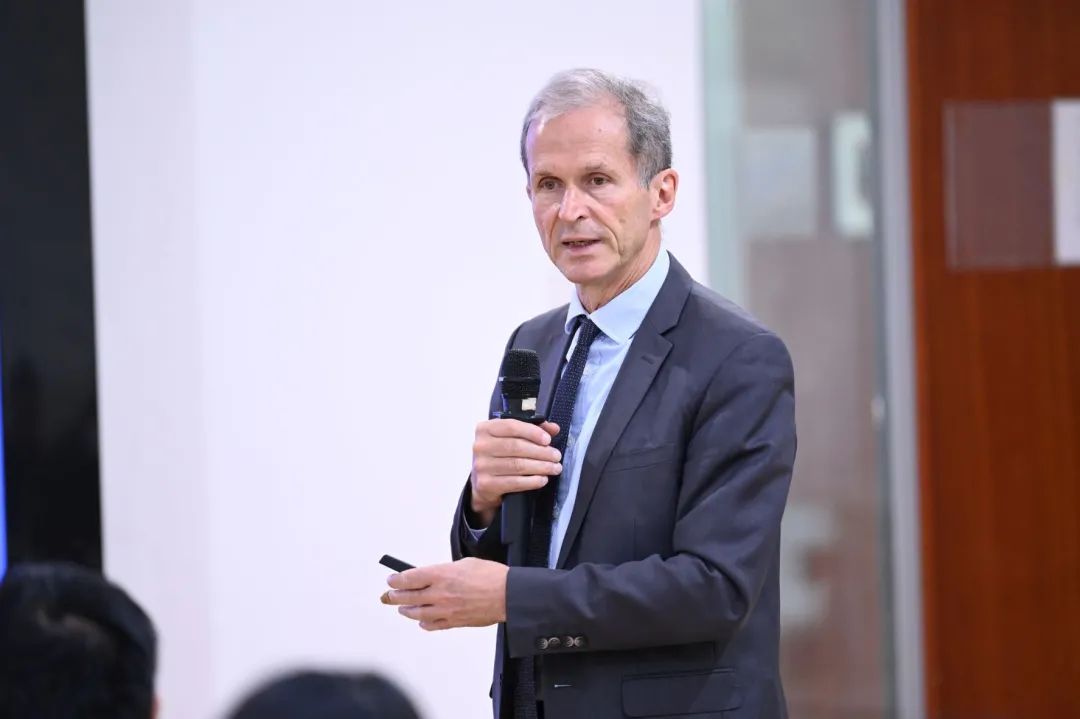
prof. erik berglof delivering a speech
prof. erik berglof pointed out that the formation of global value chains is of great significance. it is beneficial for many emerging economies to develop development paths; it is closely linked with infrastructure and the two promote each other. due to the slowdown in the development of major countries, the global value chain is shifting from developed economies to emerging economies. many aspects of the global value chain are currently being upgraded, and there are many development opportunities both upstream and downstream of the value chain. at the same time, he mentioned that the development of global value chains also faces many opportunities and challenges.
prof. erik berglof emphasized that infrastructure plays a decisive role in the expansion of global value chains. the decomposition of production processes and the further improvement of production efficiency depend on the quality of infrastructure. power and transportation networks, especially indispensable parts of infrastructure, provide necessary conditions for the operation of global value chains. he also added that the gap in digital development may become a major obstacle for different countries and regions to participate in the next stage of global value chain development.
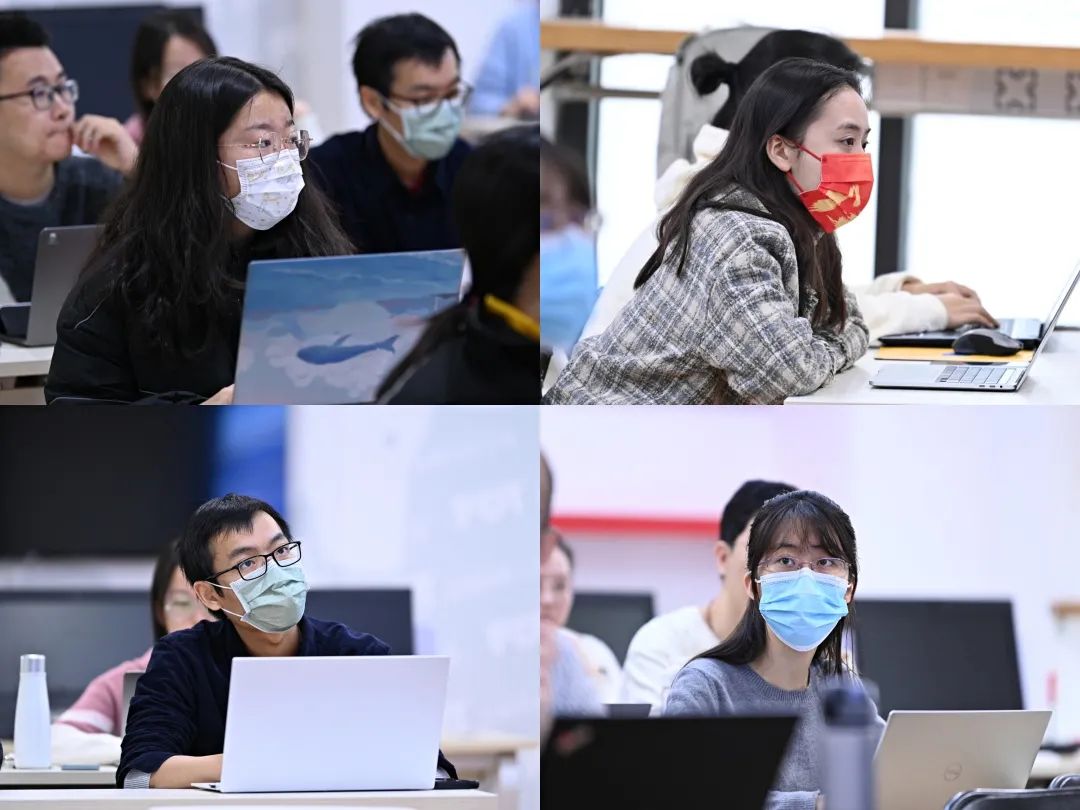
the audience at the lecture
then, prof. erik berglof focused on the role that china and india play in the global value chain. he believes that china has deeply integrated into the global value chain and is developing towards the top of the value chain to obtain higher added value. regarding india’s role in the global value chain, he pointed out that between 1990 and 2018, india has tripled in terms of export volume, but from the perspective of participation rate, india is still a small economy. for india, narrowing the gap in domestic infrastructure can promote participation in its global value chain.
prof. erik berglof specifically pointed out that in the context of global climate change and carbon neutrality strategies, the "net-zero jump" is the frontier of future development. he said that the further development of global value chains in the future will surely be incorporated into the carbon-neutral development framework and provide the basis of the industry chain for net-zero emissions.
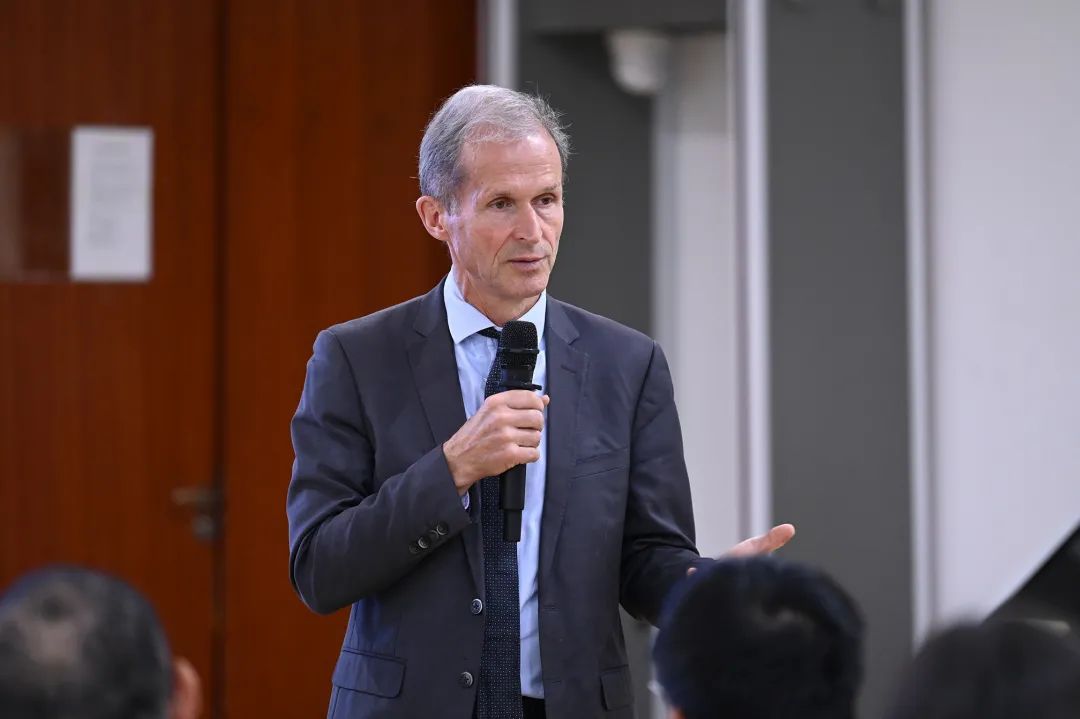
prof. erik berglof delivering a speech
at the end of the lecture, prof. erik berglof concluded that global value chains provide additional tools to achieve net-zero transitions, and provide inclusive transformation opportunities for emerging and developing economies.
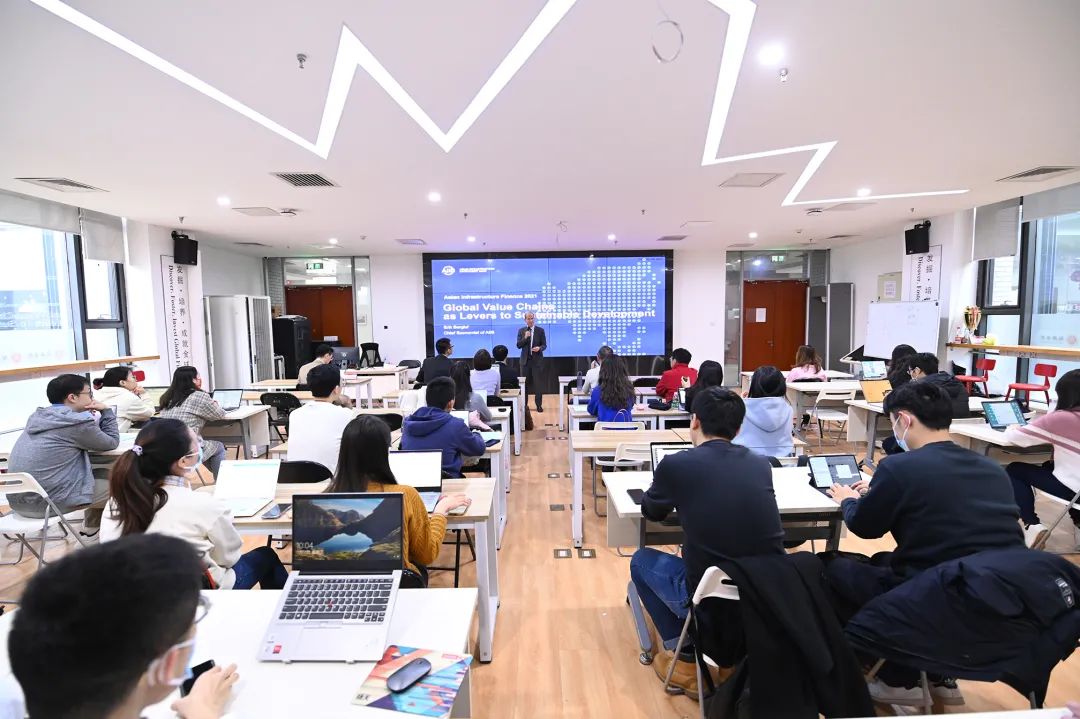
the lecture series on international organization and global economic governance
after the lecture, prof. erik berglof discussed the establishment and development of the asian infrastructure investment bank, the differences from other international organizations such as the world bank and the asian development bank, and the balance between the rate of return and public welfare in the investment process. teachers and students exchanged ideas actively on site. prof. erik berglof said that as a young international organization, the aiib needs closer cooperation with the world bank and the asian development bank. he and his colleagues welcomed and encouraged students to take internships and work in the aiib.
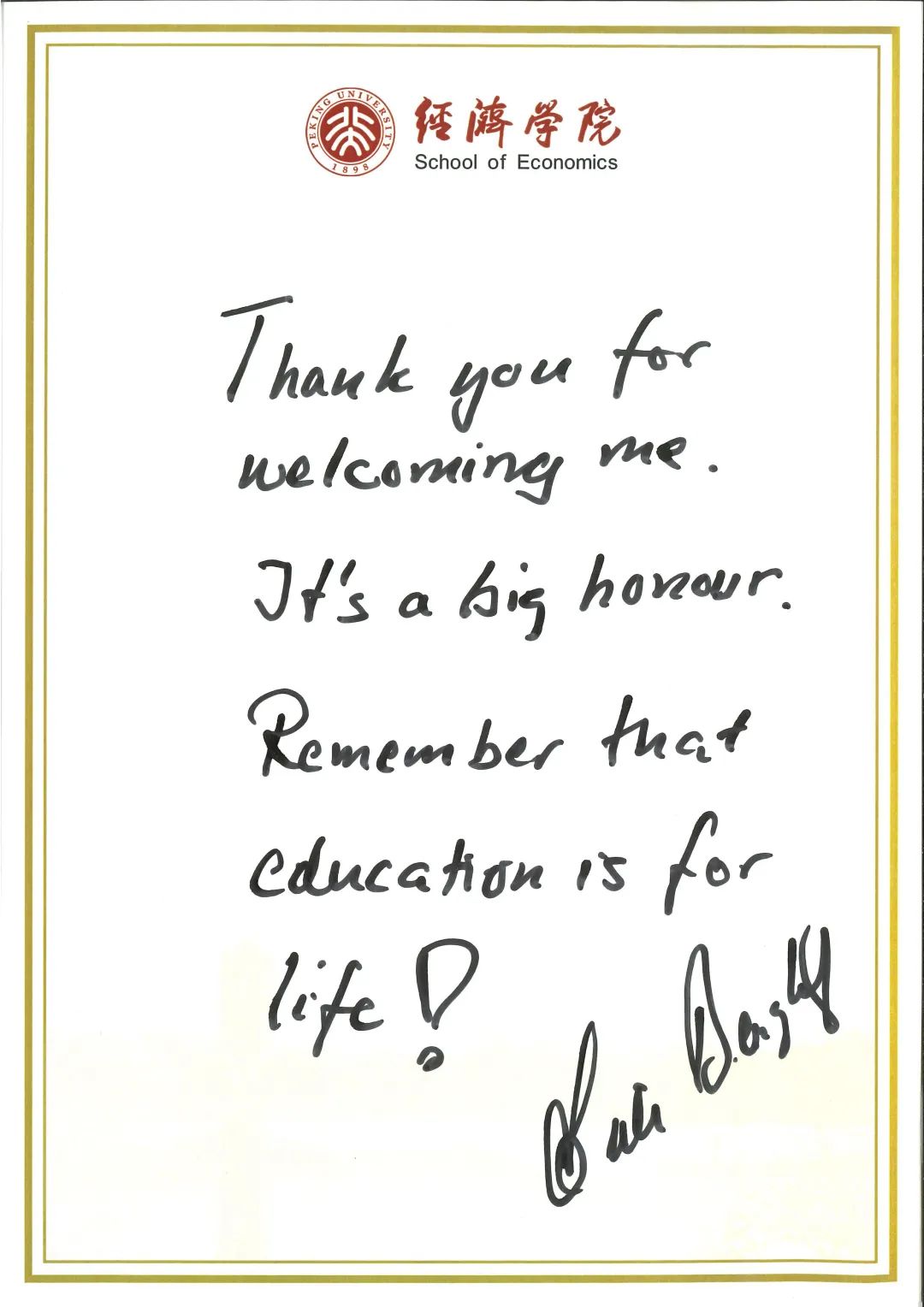
message from prof. erik berglof